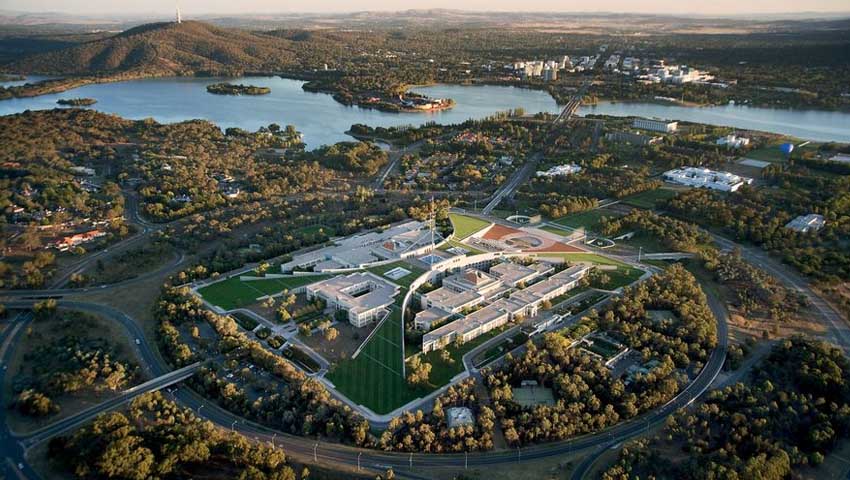National security has traditionally focused on traditionally ‘hard power’ concepts of conventional economic and military power, espionage and intelligence gathering – however, in an increasingly challenging global environment, does a true national security strategy require a more holistic response?
National security in the contemporary context is best defined by US academic Charles Maier: "National security ... is best described as a capacity to control those domestic and foreign conditions that the public opinion of a given community believes necessary to enjoy its own self-determination or autonomy, prosperity and well being."
Recognising the traditional 'hard power' elements of national security policy and strategy, which is the key responsibility of any government – namely elements of political, economic and military power – Australia has long enjoyed a period of relative stability and consistency that has empowered the nation, but also engendered a sense of complacency.
Australia has long had a tough relationship with the ‘tyranny of distance’. On one hand, the nation’s populace has treated it with disdain and hostility, while Australia’s political and strategic leaders have recognised the importance of geographic isolation.
The rise of Indo-Pacific Asia means the ‘tyranny of distance’ has been replaced by a ‘predicament of proximity’. China, India, Indonesia, Thailand, Japan and several other regional nations are reshaping the economic and strategic paradigms with an unprecedented period of economic, political and arms build-up, competing interests and rising animosity towards the post-World War II order Australia is a pivotal part of in the region.
This rapidly evolving global environment, combined with the increasing instability of the US administration and its apparent apprehension to intervene or at least maintain the global rules-based order following the radical shift in US politics, also forces Australia to reassess the strategic calculus – embracing a radically new approach to national security strategy and policy.
Changing with the times
With the rapidly evolving geo-political, economic and strategic realities of the contemporary international political environment, Australia's approach to developing a cohesive, holistic national security strategy requires updating. This is echoed by NSW senator and former Army Major General Jim Molan, who explained to Defence Connect, "Australia has had one previous attempt at putting a national security strategy in place under the Gillard government in 2013. Although it was a decent first attempt, it is has already been overtaken by events. Terrorism was the principal security challenge it focused on, and although the threat of terrorism has not disappeared, other changes in the world are demanding our focus.
"The world has changed dramatically in the six years since the release of the last national security strategy. Of primary concern is the decline of American power. At the end of the Cold War, the US planned for the contingency of fighting, and winning, ‘two and a half wars’ simultaneously. This meant it could wage two large scale regional wars and a small scale conflict elsewhere and prevail in all of them."
By its very nature, national security strategy and policy is an all encompassing area of public policy – indeed every facet of contemporary public policy is crucial to supporting the broader national security debate. From seemingly banal aspects of social security and health policy, through to infrastructure development, water security and agriculture policy, each element of public policy is intimately enmeshed as part of the broader national security conversation.
Recognising this critical factor – how does Australia respond to the rapidly evolving regional environment and develop a holistic national security strategy?
Industry development, water security, infrastructure and strategic reserves?
Australia's position and responsibilities in the Indo-Pacific region will depend on the nation's ability to sustain itself economically, strategically and politically. Despite the nation's virtually unrivalled wealth of natural resources, agricultural and industrial potential, there is a lack of a cohesive national security strategy integrating the development of individual, yet complementary public policy strategies to support a more robust Australian role in the region.
Contemporary Australia has been far removed from the harsh realities of conflict, with many generations never enduring the reality of rationing for food, energy, medical supplies or luxury goods, and even fewer within modern Australia understanding the socio-political and economic impact such rationing would have on the now world-leading Australian standard of living.
Accordingly, it is now up to Australia's political and strategic leaders to form an integrated policy agenda as part of a broader National Security Strategy – similar to that advocated for by Senator Molan – to include the development of globally competitive strategic industries, world-leading, nationally significant infrastructure and economic insulating strategic reserves.
Senator Molan stressed the importance of these developments, telling Defence Connect, "We have managed to get away with not having a national security strategy only because we have lived in a tranquil region since 1945. But our strategic environment is changing quickly, and we need to prepare for a turbulent future. Developing a national security strategy would be a vital first step towards building the capacity we need to face the potential challenges that are coming."
Let us know your thoughts and ideas about the development of a holistic national security strategy in the comments section below, or get in touch with









